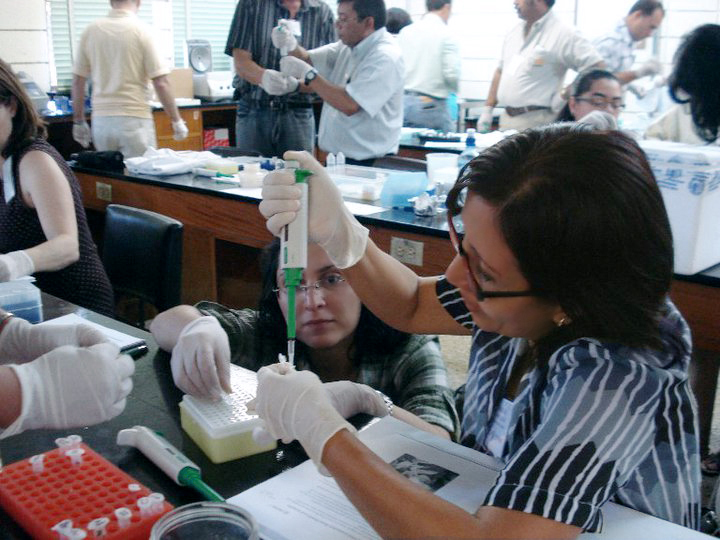
Plant disease is a limiting factor in agricultural production in Latin America. Diseases are difficult to control due to high rainfall conditions and the presence of a diversity of plant pathogenic microorganisms. Plant pathogens produce a large number of diseases on tropical crops and cause losses estimated to be as high as $30 billion per year. The risk of accidental introduction of Phytophthora species with trade requires continued monitoring and improved diagnostic capabilities.
This project's overall objective is to produce a platform of tools needed to detect, identify, and ultimately prevent spread of novel species of Phytophthora with a major focus on development of surveillance tools for common and high threat species of Phytophthora on horticultural crops including potato and root crops, cacao and floriculture crops from Central America.
An international team, led by Jean Ristaino of North Carolina State University, is deploying a series of technologies including: a Phytophthora diagnostics workshop, protocols book, a Lucid key, molecular and digital diagnostic identification systems to identify Phytophthora species and improve the diagnostic capabilities for important plant disease clinics in the region. The team works with collaborators including FHIA in Honduras; Universidad de Costa Rica; Centro Agronómico Tropical de Investigación y Enseñanza (CATIE); The World Cocoa Foundation; DOLE Fresh Fruit; the Organization of Tropical Studies; and the Associación de Mujeres Indigenous de Talamanca (ACMUITA) to conduct a survey of Phytophthora species on horticultural crops in the region. The accurate identification of Phytophthora has important implications for growers in Latin America and the United States, including establishment of a Latin American Phytophthora Diagnostic Network (LAPDN).
